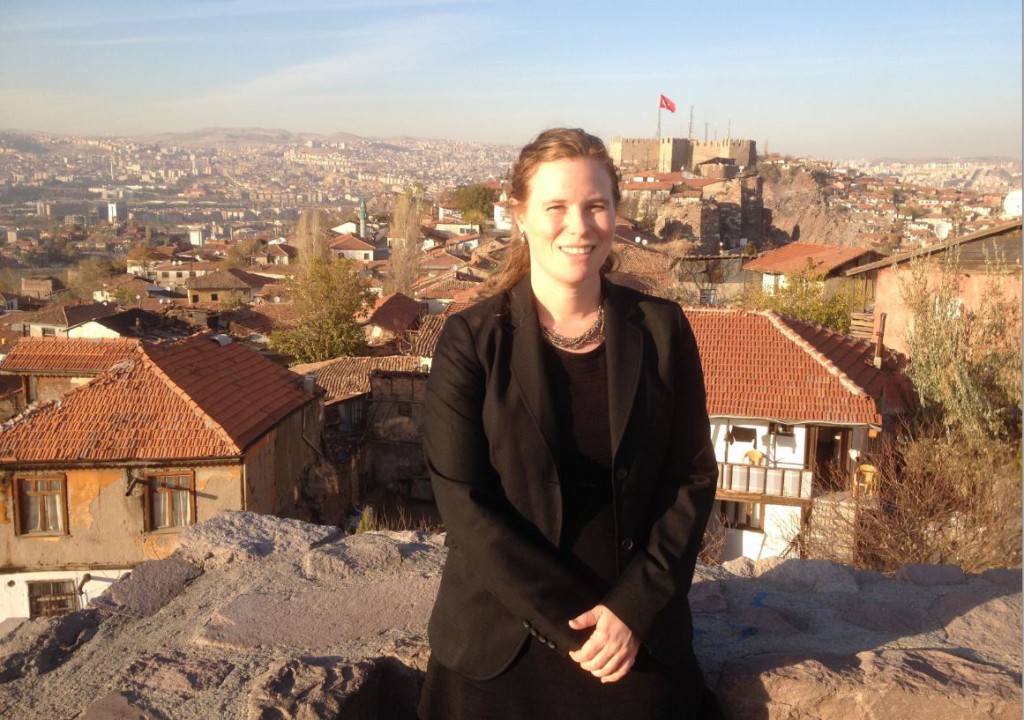The limits of hospitality: Syrian refugees in Turkey
Turkey’s health and education systems are overburdened by the crisis.
Whether it was the Presidential Palace or a school for Syrian refugee children, everywhere we went in Turkey, we were offered tea in tulip-shaped cups, or thick coffee—just miles from the border where war reigns.

This Turkish hospitality extends to over 600,000 Syrian refugees who now call Turkey home. I experienced this firsthand when I went to Turkey last month with the Truman National Security Project and the Rumi Forum. Two hundred thousand Syrians live in camps there; the rest live in cities and towns across Turkey. Of the Syrian refugees in Turkey, 294,304 are children according to the official count, and far more unofficially. A recent Brookings policy brief on the impact of Syria’s worsening humanitarian crisis on Turkey noted that “Syrian refugees repeatedly observed how generous and welcoming the local people (of Turkey) have been towards them; as one refugee said, “We feel at home here.”
Turkey has spent more than US$2 billion on humanitarian aid since the conflict began in 2011. And that amount of humanitarian aid will continue to rise as temperatures drop. Syrian refugees who fled to Turkey over the last two and a half years are running out of savings, and many of those entering now don’t have any at all. The availability of jobs as laborers on the pistachio and olive farms in the fertile Gaziantep region is also quickly dwindling. A recent Oxfam-supported survey of the livelihoods of Syrian refugees in Lebanon described the same, where 77% of refugees surveyed were in debt.
Turkey decreed this year that Syrians would have equal and full access to the Turkish health system. This has saved lives but Brookings found that access to the Turkish health system is not always universally applied on the ground and often only covers emergencies, not long term care for illnesses like cancer or diabetes.
Our delegation visited the city of Kilis, where local officials told us the population has more than doubled from 85,000 to 175,000 over the past two years. There we visited a rehabilitation hospital and a school run by Turkish NGO, Kimse Yok Mu (meaning “Is anybody there?” in Turkish) to help fill the gaps in services for Syrian refugees.
While refugee camps in Turkey have strong primary and secondary education facilities, Brookings also reports that only 10% of Syrian refugees outside camps can access education. Turkish NGOs like Kimse Yok Mu, Support to Life, and many others are filling this gap, but the demand is very high. There are significant challenges including sufficient human and financial resources, language, and transport.
Despite all these challenges, one group has not lost hope: the children of Syria, who have been particularly devastated by this conflict. UNHCR’s recent report, “The Future of Children: Refugee Children in Crisis,” tells us that Syrian children are desperate to go to school. The report states,
“Many girls and boys refuse to let go of their hopes and dreams; their eyes light up when they announce that one day, when all this is over, they will become doctors, lawyers and teachers.”
That day can’t come soon enough. The US, the Syrian government, the Syrian opposition, and other powers must come to the Geneva II peace talks ready to make peace, or a generation’s hopes will be lost. The incredible toll on people and infrastructure deepens daily—inside and outside of Syria.
Oxfam made clear recommendations to the international community on the Syrian peace talks in October, and they are even more urgent today. We must increase humanitarian aid and support countries in the region—Turkey and also Iraq, Jordan, Egypt and Lebanon—that are providing asylum to the refugees at great cost to their national housing, humanitarian, healthcare, education and employment infrastructure.
And the most important thing I know from my trip to Turkey?
Make peace.
Now.